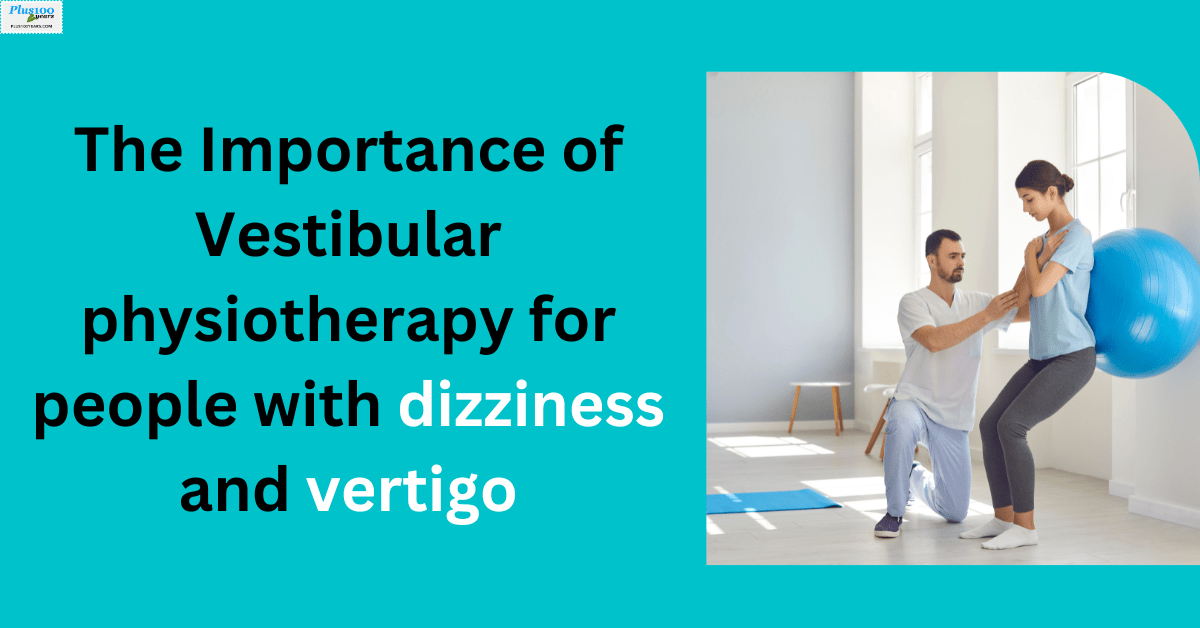
People with dizziness and vertigo are often left feeling lost and helpless. Little do most of them know, vestibular physiotherapy is a treatment option that can help restore balance and improve quality of life.
In this blog post, we will explore the importance of vestibular physiotherapy and how it can help people with dizziness and vertigo.
We will also provide tips on how you can find the right therapist and treatments to best suit your needs.
What is Vestibular physiotherapy?
Vestibular physiotherapy is a treatment that uses movement and exercise to improve symptoms of dizziness and vertigo. It has been shown to be effective in treating these conditions and can help people return to their normal activities.
Vestibular physiotherapy can be delivered in a number of ways. Some patients may receive regular treatments at a clinic or outpatient clinic. Other patients may require home exercises specifically designed to improve their symptoms.
Overall, vestibular physiotherapy is an important treatment option for people with dizziness and vertigo. It can help reduce symptoms and return people to their normal lives.
The Benefits of Vestibular physiotherapy for people with dizziness and vertigo
Vestibular physiotherapy is a type of treatment that helps people with dizziness and vertigo. Dizziness and vertigo symptoms can be improved with physiotherapy in Edmonton, which can also reduce the time that it takes for symptoms to go away.
Some of the benefits of vestibular physiotherapy include:
- Improved balance and coordination
- Reduced symptoms and improved quality of life
- Lessened reliance on medication
Also Read: What is Chronic Fatigue Syndrome
How does vestibular physiotherapy work?
Vestibular physiotherapy is a form of physiotherapy that helps to improve the balance and coordination of the vestibular system.
The vestibular system is responsible for maintaining your balance while you are standing, walking, or moving your head.
Vestibular physiotherapy can help to improve your balance and coordination by helping to restore the function of the brain and nervous system.
Vestibular physiotherapy may be used to treat a variety of conditions that affect the balance and coordination of the vestibular system. Conditions that may be treated with vestibular physiotherapy include:
- Dizziness
- Vertigo
- Meniere’s disease
- Post-concussion syndrome
- Sinusitis
- Paresis agitations
When is vestibular physiotherapy recommended?
Vestibular physiotherapy is recommended for people with dizziness and vertigo if the symptoms do not improve after taking medication, receiving physical therapy, or undergoing surgery.
Vestibular physiotherapy can help individuals regain their balance and reduce their symptoms.
What are the side effects of vestibular physiotherapy?
There are many potential side effects of vestibular physiotherapy, but the most common ones are dizziness and vertigo. These effects can be temporary or permanent, depending on the individual's symptoms and treatment plan.
Some of the common side effects of vestibular physiotherapy include:
Dizziness:
Vestibular physiotherapy can make you feel dizzy, especially if you're not used to it. This is usually mild, short-lived, and self-limited (lasting for a few hours or days).
Vertigo:
Vertigo is a feeling of spinning or whirling. It can be mild or severe, and it can last for a few minutes or hours. Vertigo can be a sign that your balance is impaired and that you need more intensive treatment.
Conclusion
Vestibular physiotherapy is an essential component of managing dizziness and vertigo. By correcting the alignment of the inner ear and improving balance, vestibular physiotherapy can help to improve function and quality of life for individuals with these conditions.
In addition, vestibular physiotherapy may also reduce reliance on medication or other treatments, which is great news for those who are looking to avoid long-term side effects.
If you're experiencing dizziness or vertigo, speak with your doctor about whether Vestibular physiotherapy might be a good option for you.

Add new comment